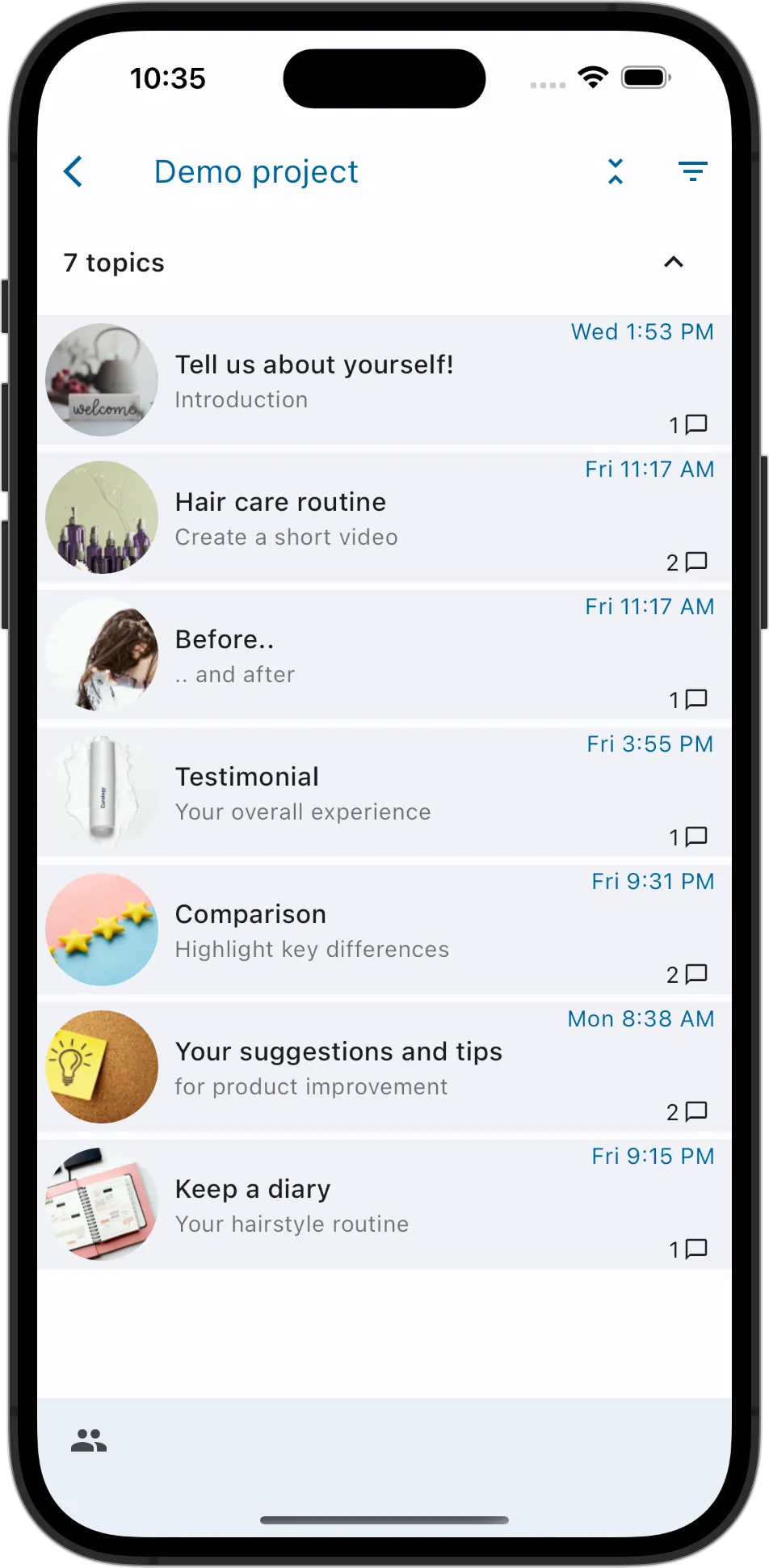Mobile Research in Healthcare
Mobile research revolutionizes healthcare by enabling real-time, context-rich data collection from patients and professionals, providing a more accurate understanding of experiences and outcomes.
Unlocking the Future of Healthcare with Mobile Research
The healthcare industry is continuously evolving, and with it, the methods used to gather insights and data are also advancing. One of the most significant shifts in recent years has been the rise of mobile research. Leveraging mobile technology for healthcare research is transforming how data is collected, analyzed, and utilized, bringing new opportunities for deeper, more meaningful insights into patient behavior, treatment outcomes, and overall public health.
The Power of Mobile Research in Healthcare
Mobile research is not just a trend; it’s a game-changer. The ability to reach patients and healthcare professionals directly through their smartphones and other mobile devices means that data can be gathered in real time, in the context of daily life, and without the constraints of traditional research methods. This leads to a more holistic and accurate understanding of patient experiences and health outcomes.
Key Benefits of Mobile Research in Healthcare
1. Real-Time Data Collection
Mobile research allows for the collection of data in real time, which is particularly valuable in healthcare. Whether tracking symptoms, medication adherence, or patient experiences, researchers can capture insights as they happen. This immediacy reduces recall bias and provides a more accurate picture of the patient journey.
2. Enhanced Patient Engagement
Mobile research platforms often include interactive features such as surveys, diaries, and even video uploads, which can increase patient engagement. Patients are more likely to participate in research that fits seamlessly into their lives, making mobile research a more patient-centered approach.
3. Broader Reach
Mobile devices are ubiquitous, meaning mobile research can reach a diverse and widespread audience. This inclusivity is crucial in healthcare research, where understanding the experiences of different demographic groups can lead to more equitable and effective healthcare solutions.
4. Cost-Effective and Efficient
Traditional healthcare research methods, such as in-person interviews or focus groups, can be time-consuming and costly. Mobile research reduces these barriers, allowing for the collection of large amounts of data quickly and at a lower cost. This efficiency can lead to faster decision-making and quicker implementation of findings.
5. Contextual Insights
Mobile research enables the capture of data in the context of participants’ everyday lives. For example, a patient can log symptoms as they occur or share photos of their meals as part of a nutritional study. This context-rich data provides a deeper understanding of the factors influencing health behaviors and outcomes.
Applications of Mobile Research in Healthcare
The applications of mobile research in healthcare are vast and varied. Some of the key areas include:
- Chronic Disease Management: Mobile research tools can track patients’ experiences with chronic conditions, providing insights into symptom patterns, treatment adherence, and quality of life.
- Patient-Reported Outcomes: Mobile surveys and diaries allow patients to report their outcomes in real time, leading to more accurate data and better-informed healthcare decisions.
- Behavioral Health Studies: Mobile research can capture real-time data on patients’ mental health, moods, and behaviors, offering valuable insights for mental health professionals.
- Public Health Monitoring: During health crises, such as pandemics, mobile research can quickly gather data on public health trends, helping to inform response strategies.
Challenges and Considerations
While mobile research offers numerous benefits, it’s essential to consider the challenges. Ensuring patient privacy and data security is paramount, particularly in the sensitive field of healthcare. Additionally, researchers must be mindful of the digital divide, ensuring that mobile research does not exclude those without access to smartphones or reliable internet connections.
The Future of Healthcare Research is Mobile
As mobile technology continues to advance, its role in healthcare research will only grow. The ability to gather real-time, contextual, and patient-centered data offers immense potential to improve health outcomes and create more effective, personalized healthcare solutions. For healthcare providers, researchers, and patients alike, embracing mobile research is not just an option—it’s the future.
Start your own Healthcare Community
Mobile research is revolutionizing the healthcare industry, making it possible to collect more accurate, real-time data from a broader and more diverse population. By overcoming traditional research limitations, mobile research is opening up new avenues for understanding patient experiences, improving treatment outcomes, and ultimately, enhancing public health. As we move forward, integrating mobile research into healthcare practices will be key to unlocking more personalized, efficient, and effective healthcare solutions for all.

